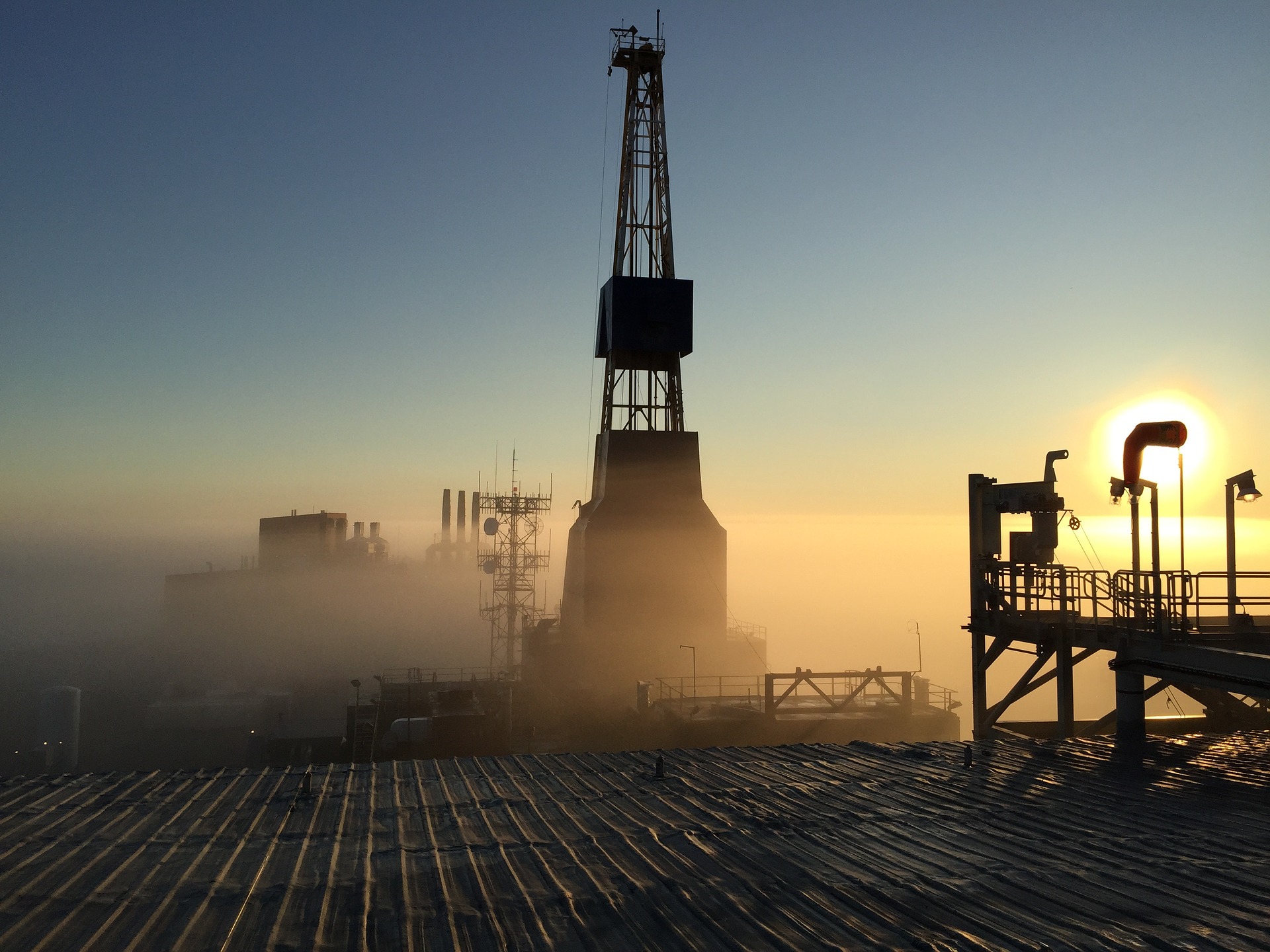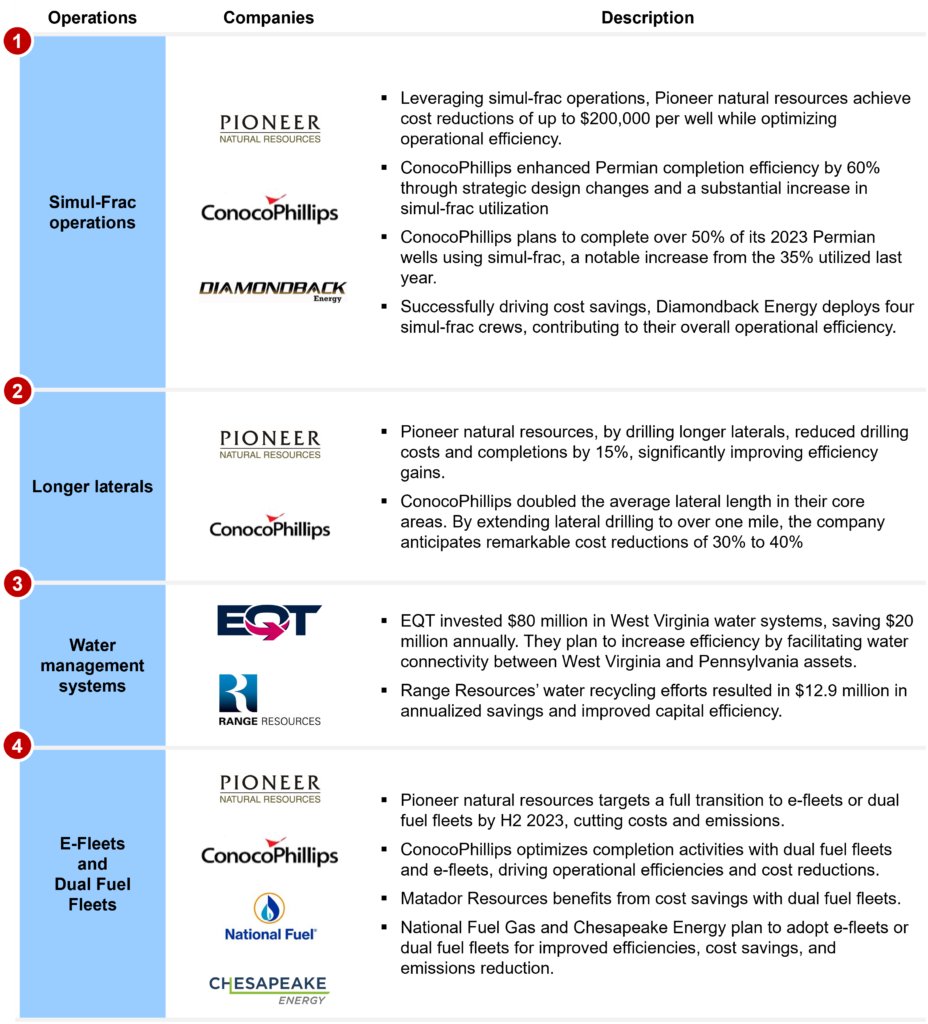
Leading shale operators from oil majors such as ExxonMobil and Chevron to the E&P independents including ConocoPhillips, Pioneer, Oxy, and Diamondback have committed to growing production without compromising returns and sustainability. Achieving this aspiration will require significant cost optimization where recent ADI research and consulting is showing significant progress by E&P companies. These cost optimization efforts comprise several initiatives that collectively span operational efficiency, scale and consolidation, and innovation (See Exhibit 1).

Innovation is a key driver of various cost optimization efforts. A lot of the innovation has focused on well completions, which accounts for a significant share of the overall capital cost of developing new wells. One of the prominent operational innovation is Simul-Fracs, where two horizontal wells are stimulated simultaneously using a single fleet.
This streamlined process accelerates completion stages by 60% over traditional zipper fracturing methods. Pioneer has reported cost reductions of as much as $200,000 per well and, this year, ConocoPhillips hopes to complete half of its wells in the Permian using simul-fracs, up from 35% last year.
Another crucial aspect of cost reduction is building scale across operational functions. One example where this has been effective is water management for hydraulic fracturing. By optimizing the treatment and utilization of produced water at centralized facilities connected by water pipelines, operators such as EQT are reducing well completion costs and operating expenses by 20% at the industry level but as much as 50% for individual companies in some cases. ADI’s market intelligence is showing water management costs as low as $0.60 per barrels – down from as high as $1.25 a barrels two years ago – for some operators in the Permian. Further, efforts are underway to improve utilization of produced water at operating companies such as Range Resources, which saves costs and contributes to environmental conservation by conserving limited surface and groundwater resources.
In operational efficiency improvements, shale operators continue to advance the drilling of longer laterals now reaching up to 15,000 feet or nearly three miles. ConocoPhillips has doubled the average later length for all of its wells in core areas. This trend allows them to cut well costs by 30% to 40% and achieve production goals with fewer wells. A number of other E&P independents have also reported significant cost reductions with longer laterals.
Finally, implementing e-fleets – fracturing fleets that run on electricity produced from natural gas-fed engines — has proven to be highly cost-effective in hydraulic fracturing operations. Using locally produced natural gas as a feed source, operators can save between $1.0 million to $1.5 million per month compared to conventional diesel-fueled fracturing fleets. This technology reduces fuel costs and enhances sustainability in the oil and gas industry.
Operators are now rapidly moving to dual fuel fleets capable of running on both diesel and natural gas. This approach significantly reduces fuel expenses, with engines seamlessly switching between diesel-only and dual-fuel operations, minimizing disruptions and downtime while reducing the environmental footprint by approximately 15%.
By integrating these innovative technologies and practices into their operations, shale operators are achieving higher cost efficiency, lower operational costs, and improved sustainability outcomes in the shale patch. ADI anticipates continued cost optimization advances as the industry matures.
ADI Analytics is a prestigious, boutique consulting firm specializing in oil & gas, energy transition, and chemicals since 2009. We bring deep, first-rate expertise in a broad range of markets including shale operations, where we support Fortune 500, mid-sized and early-stage companies, and investors with consulting services, research reports, and data and analytics, with the goal of delivering actionable outcomes to help our clients achieve tangible results.
We also host the ADI Forum, one of Houston’s distinguished industry conferences, to bring c-suite executives from oil & gas, energy transition, and chemicals together for meaningful dialogue and strategic insights across the value chains.
Subscribe to our newsletter or contact us to learn more.
– Anvesh Nadipelli and Uday Turaga



















